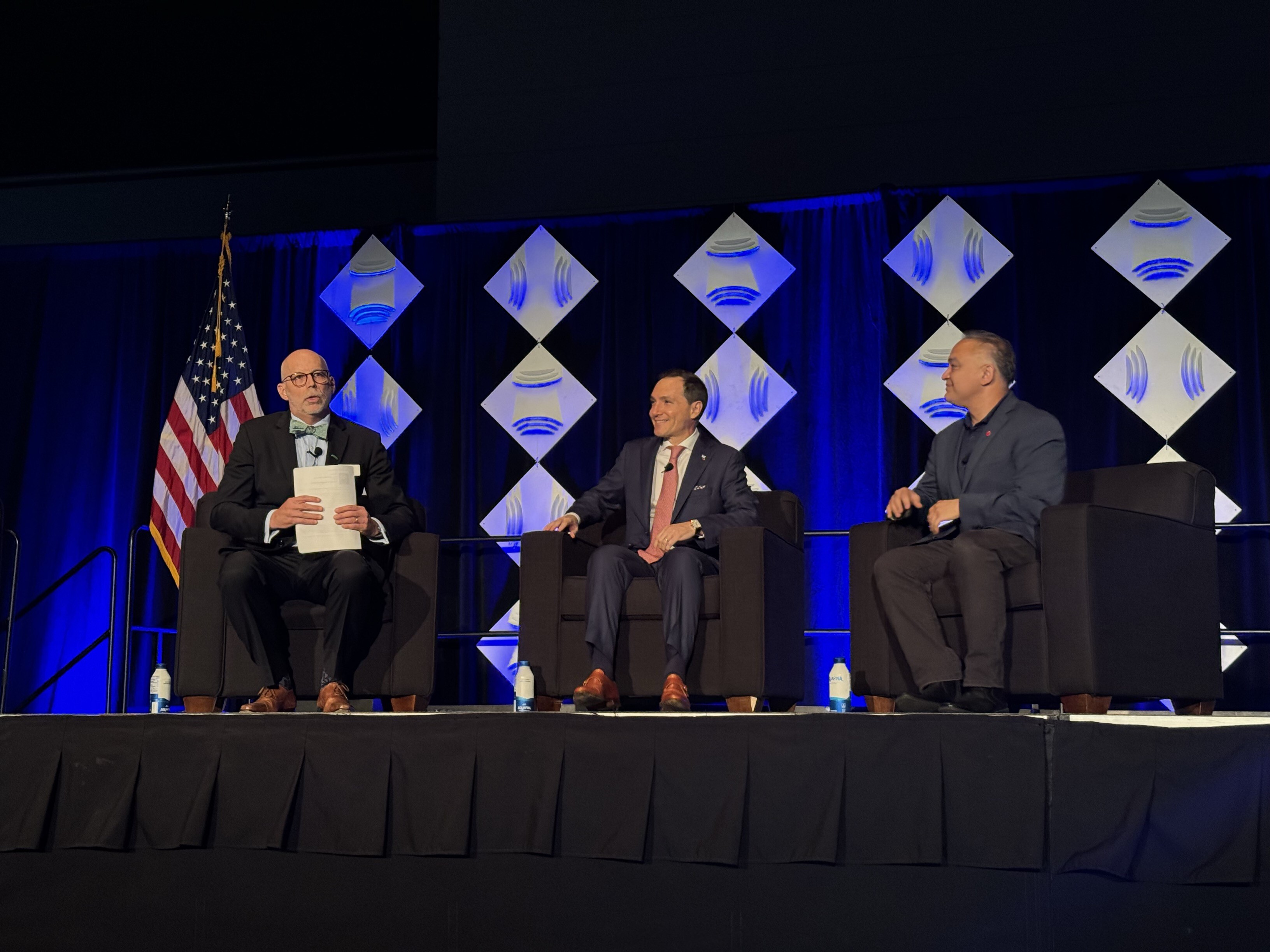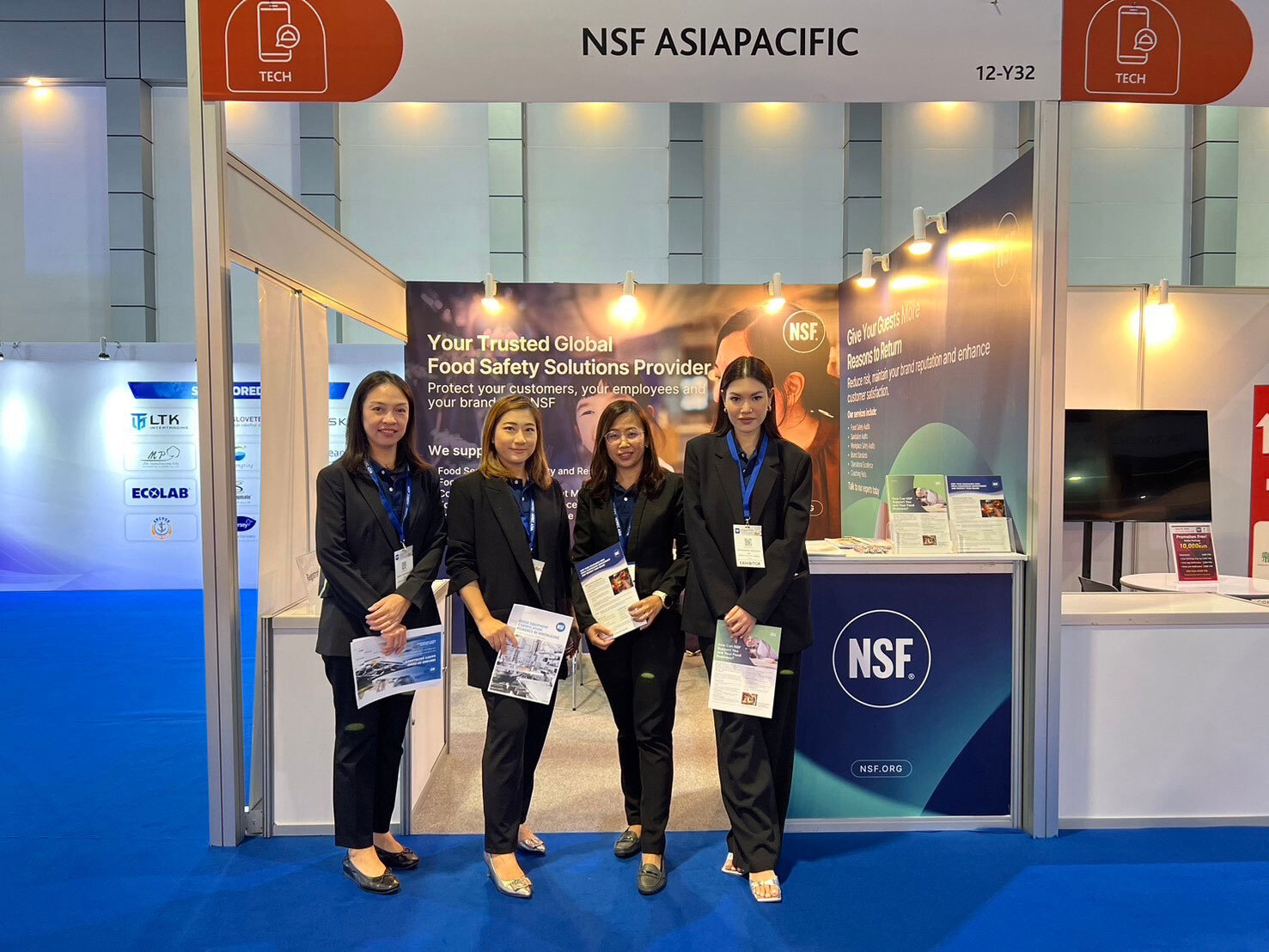Fluoridation Products and Fluoride
Why is fluoride added to drinking water?
According to the U.S. Centers for Disease Control and Prevention (CDC), drinking fluoridated water strengthens teeth and reduces tooth decay by about 25% in children and adults. Health benefits include fewer cavities, less severe cavities and less pain and suffering due to oral decay.
What are the different types of fluoride products?
NSF certifies three products in the fluoridation category:
- Fluorosilicic acid (aka fluosilicic acid or hydrofluosilicic acid)
- Sodium fluorosilicate (aka sodium silicofluoride)
- Sodium fluoride
How do fluoride products work?
All three products readily break down in water to release fluoride and related ions. Fluorosilicates fully dissociate to fluoride and silicate ions in association with either hydrogen or sodium ions. Sodium fluoride fully dissociates to form fluoride and sodium ions.
According to the CDC, fluoride works by stopping or even reversing the tooth decay process. It keeps tooth enamel strong and solid. When a person eats sugar and other refined carbohydrates, certain bacteria in the mouth produce acid that removes protective minerals from the surface of the tooth. Fluoride helps to remineralize tooth surfaces and prevents cavities from forming.
What is the history of fluoride in drinking water?
In the 1930s, scientists observed a reduction in tooth decay among children who drank water with naturally occurring fluoride. In 1945, the community of Grand Rapids, Mich. was the first to formally add fluoride to its city water system. Over time hundreds of other cities added fluoride, and by 2014 fluoridated water was flowing through nearly 75% of community water systems, according to the CDC.
How is the addition of fluoride to drinking water regulated to ensure public health?
NSF/ANSI/CAN 60: Drinking Water Treatment Chemicals - Health Effects is a public health drinking water standard developed by NSF and the American National Standards Institute (ANSI), first published in 1988. The U.S. Environmental Protection Agency had requested development of a standard under the Safe Drinking Water Act to establish minimum requirements to control potential adverse human health effects from products used for the treatment, storage and distribution of drinking water. As part of the standard development process, input was considered from an NSF-led international consortium including the American Water Works Association, the American Water Works Association Research Foundation, the Association of State Drinking Water Administrators and the Conference of State Health and Environmental Managers. Standard requirements include:
- A full formulation disclosure of each chemical ingredient in a product to allow for a comprehensive evaluation
- Testing of the chemical products, typically by dosing them in water at 10 times the maximum use level, so that trace levels of contaminants can be detected
- A further evaluation of test results to determine if concentrations of any detected contaminants have the potential to cause adverse human health effects
Is the NSF/ANSI/CAN 60 standard mandatory for communities to use?
The standard is not mandatory, but most states and numerous other countries require it. According to the latest Association of State Drinking Water Administrators survey, 49 U.S. states require that chemicals used to treat potable water meet NSF/ANSI/CAN 60 requirements. In Canada, nine provinces/territories require drinking water treatment chemicals to comply with the requirements of NSF/ANSI/CAN 60. Certification to NSF/ANSI/CAN 60 is also recognized in several other countries, including Israel, UAE, Saudi Arabia, Singapore and South Africa. Manufacturers can choose to apply to NSF or another ANSI-accredited certifying body for certification to the standard.
Should I be concerned with ingesting too much fluoride, considering it may also be in my food?
In 2015, the U.S. Department of Health and Human Services (DHHS) recommended updating the optimal range of water fluoridation due to increasing amounts of fluoride in food processed with fluoridated drinking water. DHHS identified 0.7 milligrams per liter as the optimal concentration, and several U.S. states have since adopted this dose into their regulations. More recently, the CDC also advised that the fluoride ion dose range in community water supplies should be narrowed because water utilities have demonstrated the ability to maintain control of fluoride concentrations. Based on the CDC recommendation of narrowing the fluoride range, the NSF/ANSI/CAN 60 Drinking Water Additives Joint Committee is reviewing whether to lower the upper bound of fluoride ion use from 1.2 milligrams per liter to 1.0 milligrams per liter. If this request is approved, it will be incorporated into the NSF/ANSI/CAN 60 standard in 2019. See NSF’s fact sheet for specific fluoride ion levels deemed acceptable for drinking water in U.S. and Canada.
How is continuous testing and auditing conducted to ensure safe levels of fluoride products are in my drinking water?
The review conducted by NSF for a water treatment product considers all chemical ingredients in the product, as well as the manufacturing process, processing aids and other factors that have an impact on the finished drinking water.
- The manufacturing process is documented by an NSF auditor at the initial audit of the manufacturing site and during each subsequent, annual unannounced audit of the facility.
- The manufacturing process, ingredients and potential contaminants are reviewed annually, and the product is tested for any potential contaminants of interest.
- Minimum testing for all fluoridation products includes heavy metals of toxicological concern and radionuclides because they may be contained in phosphate ore.
- NSF also inspects samples and tests and certifies products at rail transfer and storage depots where fluoridation products are transported in bulk via tanker trucks and rail cars before delivery to water treatment plants.
How can I find the requirements in my state?
If you have questions on your state's requirements, or how NSF/ANSI/CAN 60 certified products are used or required in your state, contact your state's Drinking Water Administrator.
Where else may I find information on fluoridation of drinking water?
Two great sites are:
How NSF Can Help You
Get in touch to find out how we can help you and your business thrive.

What’s New with NSF

NSF Shanghai Named Critical Site for NSF/ANSI 455 and NSF/ANSI 173 by ANSI National Accreditation Board
July 26, 2024
NSF Takes Center Stage at NEHA Annual Education Conference
July 25, 2024
NSF Asia Pacific Showcases Hospitality Solutions at THAIFEX HOREC Asia 2024 in Bangkok, Thailand
July 4, 2024